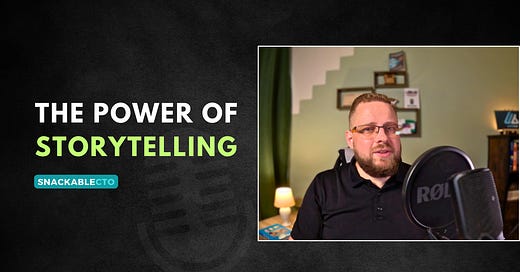Hello fellows,
“How to keep people engaged throughout a longer project?” That is an often-asked question by aspiring leaders and is based on the knowledge that the initial spark of a new project always shines bright but, over time, fades.
Standup meetings, weekly reports, or some Kanban boards won’t help to keep the developers and everyone else involved in that journey interested.
That is because it’s very abstract and has little value for the individual. From the perspective of a developer, there are two significant standpoints:
The Professional who wants to do the job right (Calling & Profession)
The Human who wants to be excited (Ego & Self)
To stay professional and work towards goals even if you feel disconnected needs a lot of discipline or negative motivation enforced by someone else.
Unfortunately, that is often the major driver, leading to a lousy working culture.
Creative developers can be enforced.
Developers are creative people; creativity is essential to finding the best solutions. Negative motivation and discipline are the worst companions when it comes to creativity.
To keep everyone engaged, intrinsically motivated, and connected to our journey, we must include them as an essential part of this story.
A logical step is to start seeing this software project as a journey full of unknown challenges and hurdles we must master and overcome. Accept this as a story, which it will be anyway when we talk about it in hindsight.
Developers as part of a bigger narrative
Humans naturally love being part of a story because stories connect us to something more significant, giving context and meaning to our actions. Just like when we binge-watch a Netflix series, we don’t just care about what happens next—we care about the characters, their growth, and the challenges they face along the way. We feel invested because stories tap into our emotions, engaging us in a way that raw information or data never could.
In a software project, this dynamic works the same. When developers feel part of a bigger narrative, it’s not just about completing tickets or fixing bugs. They become invested in the journey—the successes, the failures, and how their contributions shape the overall outcome.
Just as Netflix keeps us hooked by weaving plot twists and character development into every episode, storytelling in leadership keeps your team interested in the project’s progress and how their role fits into the larger picture.
This emotional engagement is what makes storytelling such a powerful tool in leadership. It’s not about manipulating people but giving them a reason to care, to feel connected, and to take ownership of their part in the journey. When they see how their work contributes to the bigger story, they stay motivated, not because they have to, but because they want to know what happens next.
Key Takeaways
Engages teams: Storytelling keeps developers connected to the project.
Boosts motivation: Framing work as a journey inspires intrinsic motivation.
Enhances creativity: A compelling narrative fosters a positive, creative environment.
Bridges communication gaps: Aligns business and tech teams with a shared vision.
Humanizes work: Turns tasks into meaningful contributions within a larger story.















Share this post